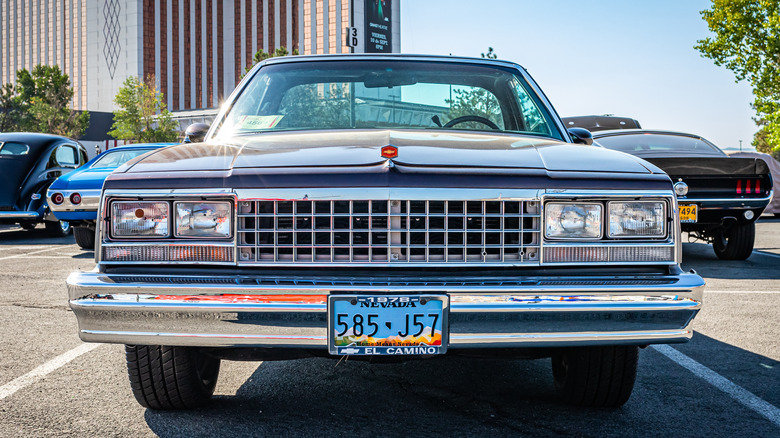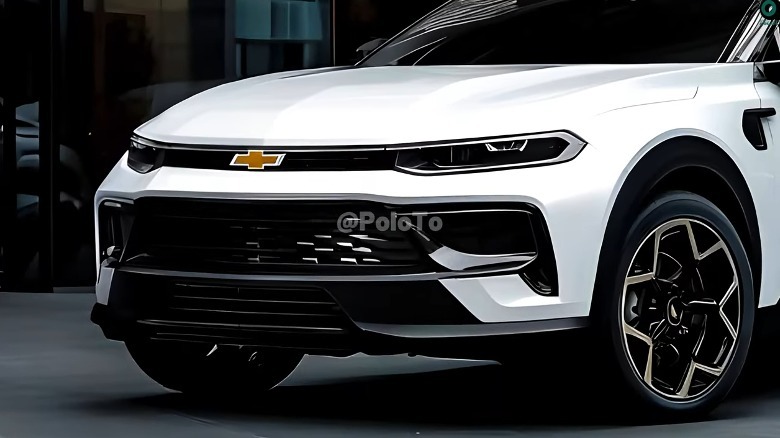Is The 2025 Chevrolet El Camino Real?
Throughout the decades, Chevrolet has released some incredibly successful vehicles, but there are a few models that reside in a league all their own. Alongside such greats as the Chevy Corvette, Impala, and Chevelle, to name a few, is the ever-iconic El Camino. The coupé utility vehicle was released between 1959 and 1960 before disappearing from the market for a few years. It returned for a second and final run from 1964-1987, with Chevrolet then choosing to discontinue the El Camino for good. It turned heads thanks to its classy look and combination of pickup truck and sedan traits, making it quite a standout from pretty much everything else on the market at the time.
Sadly, despite its enduring popularity, the El Camino has yet to return to the road in the 21st century — but could it be coming back? The internet rumor mill has been flooded with claims and even videos touting the grand return of the El Camino after almost 40 years in retirement, but this likely isn't true — at least right now. Chevrolet has yet to come out and formally announce the El Camino's comeback, and numerous of the videos purporting to be about the 2025 El Camino are generated using artificial intelligence.
This instance of the rumored 2025 El Camino instead brings about a wider discussion about the prevalence of AI misinformation online, and how car enthusiasts can go about spotting and combatting it.
Identifying fake, AI-generated renders of the 2025 El Camino and other cars
Artificial intelligence image and video generators have led to the creation of everything from fake movie posters to dangerous political disinformation — in addition to false claims regarding new technology. Much of the hype surrounding the supposed 2025 Chevrolet El Camino was brought on by the spread of AI "proof" that the car is coming. The renders likely did so thanks to a combination of hope from car enthusiasts for such a vehicle, and a lack of knowledge of how to spot works of this emerging tech.
AI media has evolved extremely quickly as of late, but there are a few things you can do to spot AI car-related examples. One of the biggest tells is letters, as AI doesn't quite grasp what text is, so words can come out like gibberish. If there's any kind of lettering or text badges on an alleged new car mock-up, and it doesn't appear legible, it's likely an AI work.
You can also keep an eye out for uncanny perfection within an image and unrealistic details. In the above artificial intelligence render posted on YouTube, the car is overly-smooth and shiny, there's warping on the front grille, and the hubcap is distorted in a way that a real example wouldn't be. Searching for the image or video on Google — especially if it's been widely reported by reputable outlets — can be a strong indicator of its legitimacy. If similar images can't be found, or the reported example is only discussed by unreliable sources, it's probably an AI generated hoax.
In the case of the faked 2025 El Camino, there's no consensus among the many "reports" that show a variety of AI-generated images purporting to be "confirmed" examples of a new El Camino. As great as a 2025 Chevrolet El Camino would be, it's simply not in the cards for now.


